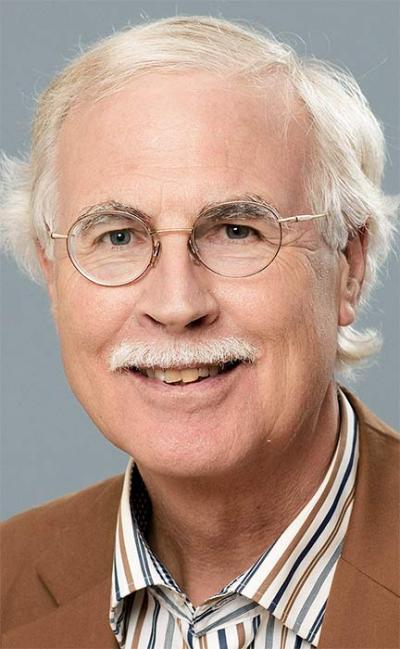

 JavaScript started out as a simple extension for the browser but has become so much more. In part, this is true in building on rich concepts going back to Lisp. Along the way, it has challenged the givens of programming and given us a high-performance flexible language along with rich libraries and rich tools. We're just beginning to discover the possibilities. more
JavaScript started out as a simple extension for the browser but has become so much more. In part, this is true in building on rich concepts going back to Lisp. Along the way, it has challenged the givens of programming and given us a high-performance flexible language along with rich libraries and rich tools. We're just beginning to discover the possibilities. more
 MIT released a comical study in May of 2020 on the historical innovation accomplishments, and the potential logistical endeavors brought to light by the beleaguered United States Postal Service. The apparent scholarly article cited several technological implementations and employee empowered frameworks that could define the USPS's plight over the next five years. These frameworks, through FY2025, mention a postal-banking initiative and two AI autonomous vehicles initiatives. more
MIT released a comical study in May of 2020 on the historical innovation accomplishments, and the potential logistical endeavors brought to light by the beleaguered United States Postal Service. The apparent scholarly article cited several technological implementations and employee empowered frameworks that could define the USPS's plight over the next five years. These frameworks, through FY2025, mention a postal-banking initiative and two AI autonomous vehicles initiatives. more
A group of experts from Interisle Consulting Group released a paper today, reporting a comprehensive study of the phishing landscape in 2020. The study's goal was to capture and analyze a large set of information about phishing attacks to better understand how much phishing is taking place, where it is taking place, and better ways to fight them. more
 We all have a creative side, so consider meeting my friend Marlowe if you are an aspiring author. Authors.ai is a relatively new web property directly related to enhancing your novel's success or manuscript using Artificial Intelligence. Practically, Marlowe (the intelligent AI engine) reads and writes manuscripts in under an hour. Marlowe is labeled as a self-editing tool but's it is much more nuanced. more
We all have a creative side, so consider meeting my friend Marlowe if you are an aspiring author. Authors.ai is a relatively new web property directly related to enhancing your novel's success or manuscript using Artificial Intelligence. Practically, Marlowe (the intelligent AI engine) reads and writes manuscripts in under an hour. Marlowe is labeled as a self-editing tool but's it is much more nuanced. more
 The AI Strategy course at UC Berkeley has come to an abrupt end, but formal learnings in AI will continue. I want to thank professors at UC Berkeley, Alberto Todeschini, Ph.D., and Stuart Russell, who developed a comprehensive course to implement AI in business. After three certificates, Alberto has encouraged me to pursue a master's in Artificial Intelligence. My wife and I are contemplating this next step. more
The AI Strategy course at UC Berkeley has come to an abrupt end, but formal learnings in AI will continue. I want to thank professors at UC Berkeley, Alberto Todeschini, Ph.D., and Stuart Russell, who developed a comprehensive course to implement AI in business. After three certificates, Alberto has encouraged me to pursue a master's in Artificial Intelligence. My wife and I are contemplating this next step. more
 KPIs are industry-specific and should be aligned carefully with your AI strategy. My course at UC Berkeley drills down heavily on how to define success when implementing your AI strategy, and measurement, like anything else, is the top priority. One technique that can potentially be used in your organization as you embark on your AI strategy is to use the SMART method for KPIs. SMART stands for Specific, Measurable, Attainable, Relevant, and Time-Sensitive. more
KPIs are industry-specific and should be aligned carefully with your AI strategy. My course at UC Berkeley drills down heavily on how to define success when implementing your AI strategy, and measurement, like anything else, is the top priority. One technique that can potentially be used in your organization as you embark on your AI strategy is to use the SMART method for KPIs. SMART stands for Specific, Measurable, Attainable, Relevant, and Time-Sensitive. more
 Apple announced its decision to trust only one-year digital certificates on its Safari browser in February 2020. This decision created a domino effect, with Mozilla and Google following suit; certificate providers announced they would not issue two-year certificates after Aug. 19, 2020. We wrote an article in March to help brands to prepare for this change. more
Apple announced its decision to trust only one-year digital certificates on its Safari browser in February 2020. This decision created a domino effect, with Mozilla and Google following suit; certificate providers announced they would not issue two-year certificates after Aug. 19, 2020. We wrote an article in March to help brands to prepare for this change. more
A new Google for India Digitization Fund, announced by Sundar Pichai, CEO of Google and Alphabet, will invest approximately $10 billion into India over the next 5-7 years. more
 Amazon has already received a retail windfall, but their infrastructure will be more critical in the long run. My final exam this term will include a take-home question: How will COVID-19 affect the fortunes one of the major Internet companies - Apple, Google, Facebook, or Microsoft? I didn't include Amazon because they are an obvious winner. On December 30, 2019 Amazon stock was selling for $1,847.84 per share and on May 1, 2020 it was $2,286.04, a 23.7 percent increase. more
Amazon has already received a retail windfall, but their infrastructure will be more critical in the long run. My final exam this term will include a take-home question: How will COVID-19 affect the fortunes one of the major Internet companies - Apple, Google, Facebook, or Microsoft? I didn't include Amazon because they are an obvious winner. On December 30, 2019 Amazon stock was selling for $1,847.84 per share and on May 1, 2020 it was $2,286.04, a 23.7 percent increase. more
 For our final blog in this series, looking at the online risks associated with COVID-19, we focus on social media. The popularity of social media channels means that they are extremely susceptible to exploitation by cybercriminals and other infringers, particularly during the coronavirus crisis. In an earlier post in this series, we discussed the use of social media for the distribution of phishing-related content, but CSC has also noted marked activity relating to the creation of fake accounts. more
For our final blog in this series, looking at the online risks associated with COVID-19, we focus on social media. The popularity of social media channels means that they are extremely susceptible to exploitation by cybercriminals and other infringers, particularly during the coronavirus crisis. In an earlier post in this series, we discussed the use of social media for the distribution of phishing-related content, but CSC has also noted marked activity relating to the creation of fake accounts. more
 The Coronavirus pandemic has profound impact on every aspect of every person's life. We all have turned to the Internet to stay informed on this one subject. Unfortunately, the Internet community is not equipped to organize the Internet around one subject. Governments and businesses are reorganizing their websites daily to make new paths to new coronavirus information on many topics suitable for their many audiences. more
The Coronavirus pandemic has profound impact on every aspect of every person's life. We all have turned to the Internet to stay informed on this one subject. Unfortunately, the Internet community is not equipped to organize the Internet around one subject. Governments and businesses are reorganizing their websites daily to make new paths to new coronavirus information on many topics suitable for their many audiences. more
 Nobody loves a good crisis more than a hacker and, by anyone's definition, coronavirus is a big, fat stinking crisis that almost everyone on earth is sitting in the middle of. For most of us, a crisis brings out the best. First responders and the healthcare systems are replete with stories of superhuman sacrifice and commitment to others. Unfortunately, it is this commitment to the work at hand that puts cybersecurity on the back burner and increases the chance of a breach, break-in, or general mischief. more
Nobody loves a good crisis more than a hacker and, by anyone's definition, coronavirus is a big, fat stinking crisis that almost everyone on earth is sitting in the middle of. For most of us, a crisis brings out the best. First responders and the healthcare systems are replete with stories of superhuman sacrifice and commitment to others. Unfortunately, it is this commitment to the work at hand that puts cybersecurity on the back burner and increases the chance of a breach, break-in, or general mischief. more
 In the midst of the coronavirus crisis and the partial or total quarantines happening around the world, more people are turning to eCommerce for their purchases. This, combined with the increased demand for healthcare and healthcare-related products, is causing surges of activity on online marketplaces. Perhaps least surprising is the growth in the number of listings for cleaning and hygiene products (e.g., hand sanitizer), as well as facemasks... more
In the midst of the coronavirus crisis and the partial or total quarantines happening around the world, more people are turning to eCommerce for their purchases. This, combined with the increased demand for healthcare and healthcare-related products, is causing surges of activity on online marketplaces. Perhaps least surprising is the growth in the number of listings for cleaning and hygiene products (e.g., hand sanitizer), as well as facemasks... more
 As news of the spread of the coronavirus (COVID-19) continues to emerge, CSC has undertaken the first in a series of studies looking at how the development of the crisis has affected online content. This first article looks at the numbers of registered domains with names containing coronavirus-related strings - "coronavirus" or "covid(-)19" (optional hyphen) - and analyzes the types of content present on the associated websites. more
As news of the spread of the coronavirus (COVID-19) continues to emerge, CSC has undertaken the first in a series of studies looking at how the development of the crisis has affected online content. This first article looks at the numbers of registered domains with names containing coronavirus-related strings - "coronavirus" or "covid(-)19" (optional hyphen) - and analyzes the types of content present on the associated websites. more
 With the COVID-19 health crisis evolving so quickly, it's hard to predict the extent of the long-term impact on business and the economy. While every business sector is facing different considerations, it's safe to say all are handling challenges from supply chain interruptions, rapid shifts to remote work, and massive changes in consumer spending and communication habits. more
With the COVID-19 health crisis evolving so quickly, it's hard to predict the extent of the long-term impact on business and the economy. While every business sector is facing different considerations, it's safe to say all are handling challenges from supply chain interruptions, rapid shifts to remote work, and massive changes in consumer spending and communication habits. more